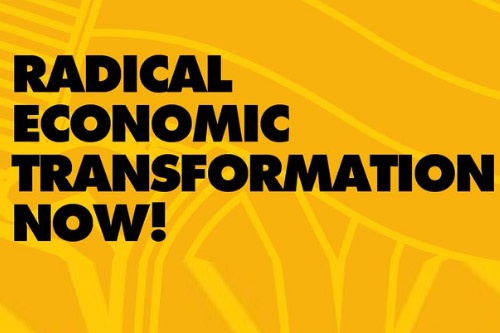The bulk of the tax relief provided thus far has gone into providing cash flow support for tax-compliant businesses that have been negatively impacted by Covid-19.
However, under certain circumstances, taxpayers with pre-Covid-19 tax debts may also be granted access to the Covid-19 tax relief, says Beatrie Gouws, head of stakeholder management and strategic development at the South African Institute of Tax Professionals (Sait).
Taxpayers with outstanding tax debt can generally apply for a debt deferment arrangement with the South African Revenue Service (Sars) and a waiver of the penalties on new returns.
Once they have an approved debt agreement with Sars, the taxpayer will also be able to apply for the Covid-19 tax relief for pay-as-you-earn (PAYE) and provisional tax.
In terms of the relief, 35% of the employer’s total employee tax liability (PAYE) may be deferred as well as 35% of the provisional tax liability.
Six installments
A Sars spokesperson says the taxpayer will pay 65% when the return is submitted and the balance (35%) for April, May, June, July and August will be deferred in six installments.
If an employer defaults on the payment of the installments, penalties and interest will be imposed for the month of the default.
Joon Chong, tax partner at Webber Wentzel, says if taxpayers do not need to defer the 35% of the monthly PAYE they can pay the tax in full.
“This is ideal as employers need not keep track of installment payments due on the PAYE statement of account and risk incurring penalties and interest due to late payments.”
Provisional tax deferrals
In terms of the provisional tax deferrals, “qualifying taxpayers” with a gross income less than R100 million will be able to defer their first and second provisional tax payments.
They will be able to pay 15% instead of 50% of the estimated tax liability for the first payment and then 50% as the second payment.
Chong explains that 100% of the estimated tax liability will have to be paid by the third provisional payment to avoid interest.
“It appears that turnaround times for responding to applications for additional relief (large businesses or qualifying taxpayers needing more relief) are not set yet and there is no set number of days by which Sars has to respond,” notes Chong.
She advises taxpayers to follow up with their relationship manager or the Sars call centre to find out who the application has been allocated to, and then follow up regularly with that Sars official for a response.
Baker McKenzie tax experts Virusha Subban and Denny da Silva say the aim with the installment arrangements is to alleviate the cash flow burden of tax-compliant businesses during the pandemic economic crisis. The installment payment option applies to both small and larger businesses, as well as multinationals operating in South Africa, they say.
“Taxpayers making use of this relief scheme must be able to prove substantial and material financial hardships as a result of Covid-19.
“Penalties will only be remitted if taxpayers are able to successfully prove the serious impact of Covid-19 on their business.”
‘Digital offerings’ from Sars
Sars has introduced several “digital offerings” in order to service taxpayers during the lockdown period. One is the introduction of an online appointment system.
However, Yolandé Breedt, tax practitioner at Rabie Taxation Services, is frustrated with the appointment system. They have applied for appointments, but are getting no response. An application made in April is yet to receive a response.
“Before lockdown we were able to secure an appointment within a month [of] applying. However, now we are not even getting a response.”
This impacts many taxpayers’ ability to obtain refunds, says Breedt.
Tax practitioners are also unable to book appointments for their expat clients. The system does not allow the use of passport numbers, only SA identification numbers.
Sars says the use of passport numbers for non-residents will be introduced in the next phase of the online booking service.
Sars has also made it possible to submit certain supporting documents online, such as the original documents required to verify banking details. Previously this could only be done at a branch.
Breedt says in certain instances it is not possible to upload the documents because the link provided for the upload is not available, or the taxpayer is informed that their details cannot be verified by a third party. The taxpayer or theit practitioner then has to visit a branch – when they are able to get an appointment.
Elle Sarah-Rossato, head of tax controversy and dispute resolution at PwC, says taxpayers need a case number in order to upload documents, which they have to obtain from the call centre.
“The call centre appears to be swamped and contacting Sars through this channel takes significantly longer,” says Rossato.
Sars says the letter requesting supporting documents will also have a case number that will correspond with the request for documentation which can be used.
Article: Moneyweb




